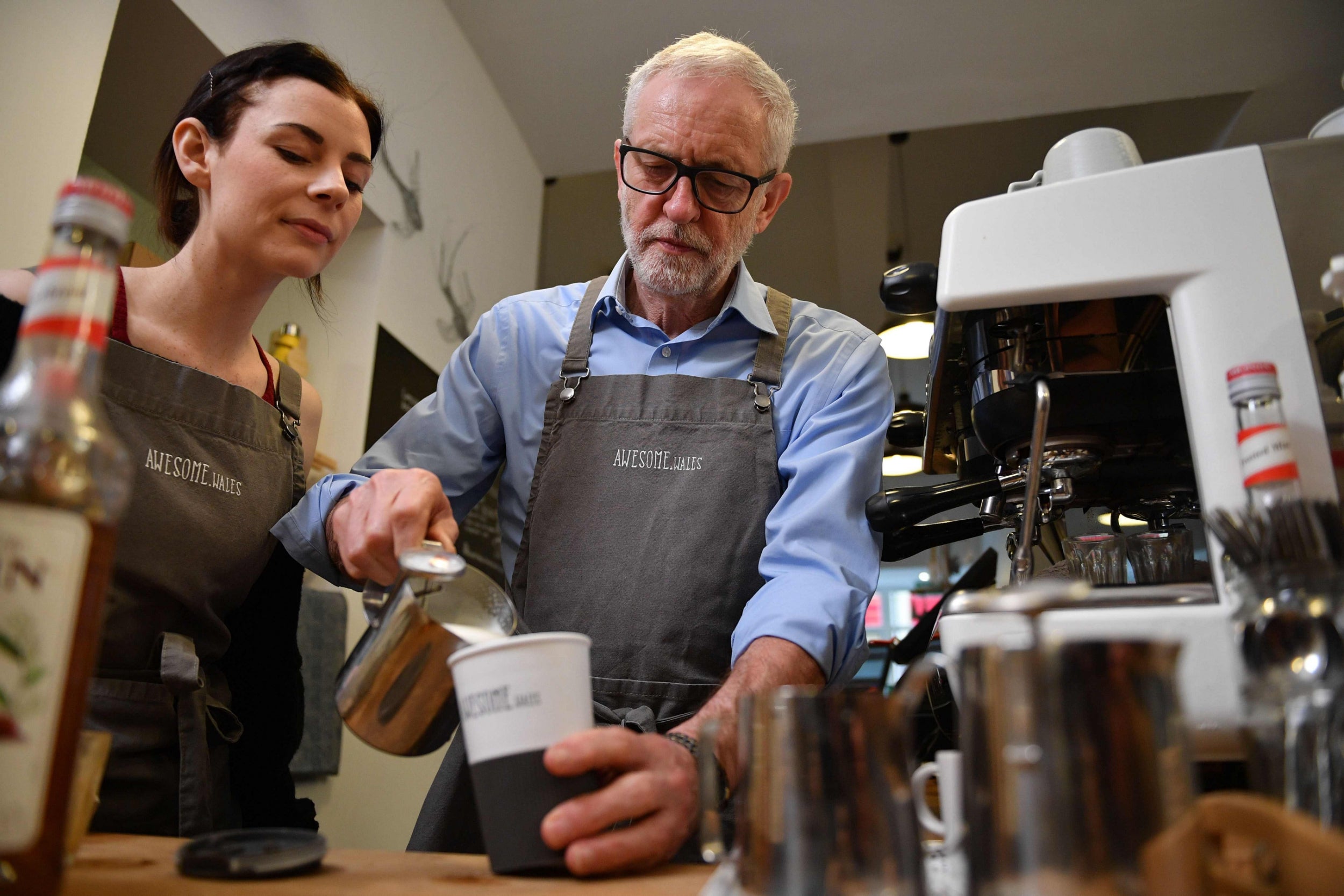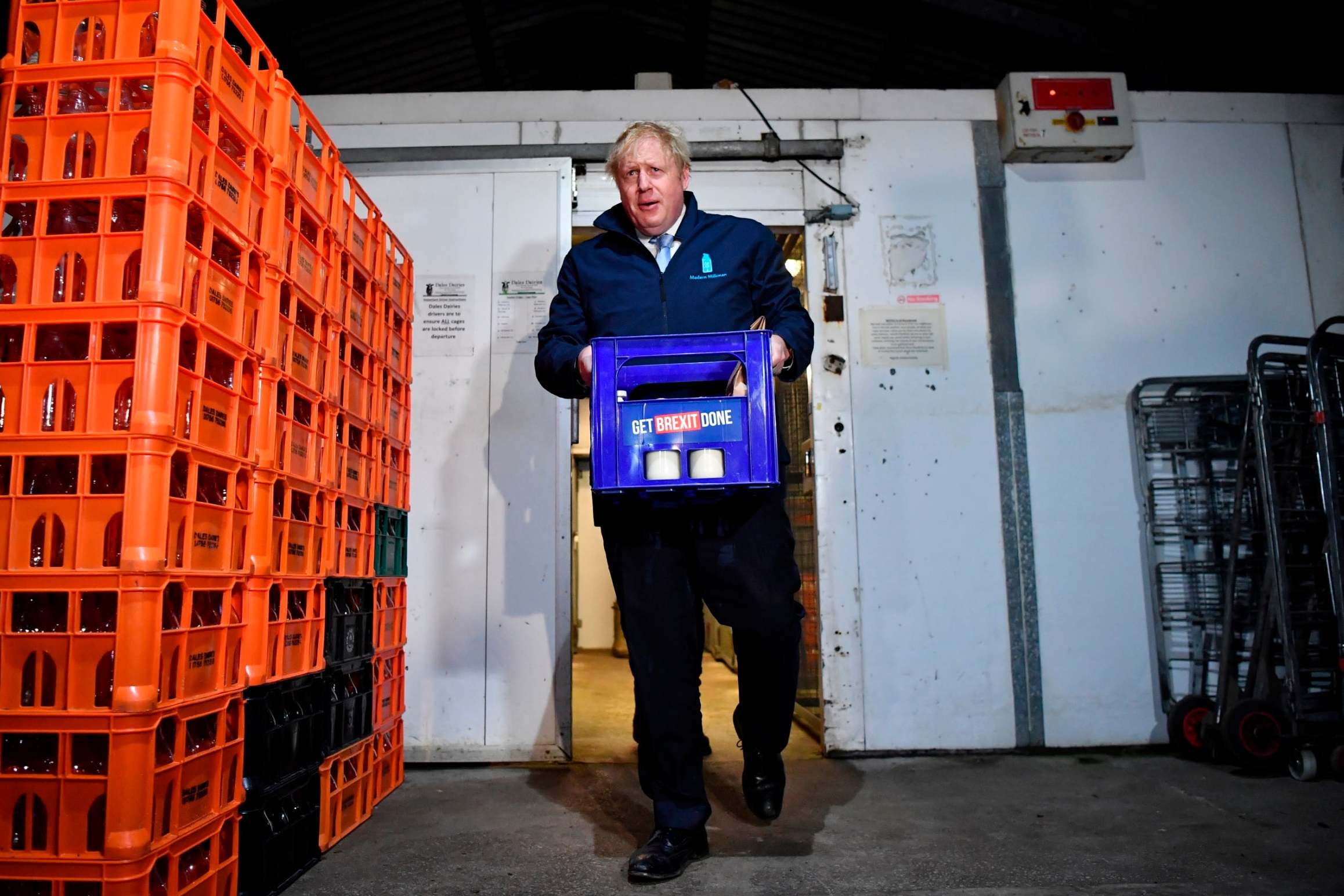General election: Tactical voting expected to play major role in ‘truly historic’ ballot
Poll has potential to shape nation’s future for decades to come, but the outcome is still highly uncertain

Your support helps us to tell the story
From reproductive rights to climate change to Big Tech, The Independent is on the ground when the story is developing. Whether it's investigating the financials of Elon Musk's pro-Trump PAC or producing our latest documentary, 'The A Word', which shines a light on the American women fighting for reproductive rights, we know how important it is to parse out the facts from the messaging.
At such a critical moment in US history, we need reporters on the ground. Your donation allows us to keep sending journalists to speak to both sides of the story.
The Independent is trusted by Americans across the entire political spectrum. And unlike many other quality news outlets, we choose not to lock Americans out of our reporting and analysis with paywalls. We believe quality journalism should be available to everyone, paid for by those who can afford it.
Your support makes all the difference.Tens of millions of voters will head to the polls on Thursday in a truly historic general election which has the potential to shape Britain’s future for decades to come, with the outcome still highly uncertain.
Polls suggested that Boris Johnson’s Conservatives were heading for a small working majority of around 20-30 MPs – enough to allow him to push through Brexit on 31 January and set the UK economy on track for years of turbulence as he gives up membership of the single market and customs union and attempts to negotiate complex trade deals in Europe and around the world.
But the spectre of a hung parliament remained over the prime minister, due to the volatility of the electorate and the potential for widespread tactical voting which could snatch an overall majority from his grasp.
And Mr Johnson’s claim to be able to “get Brexit done” was dealt a heavy blow as EU chief negotiator Michel Barnier told a meeting of MEPs in Brussels that it would not be possible to complete a full trade deal by the PM’s self-imposed deadline of December 2020 and warned that the prospect remains of a no-deal crash-out at the end of next year.
Meanwhile, former Sainsbury’s chief executive Justin King branded Mr Johnson’s EU withdrawal agreement a “terrible deal” which would damage the food and agricultural sectors and commit the UK to an “impossible” timetable to negotiate future trade arrangements with the continent.
An eve-of-election poll of more than 1,600 voters by BMG Research for The Independent put Tories on 41 per cent to Labour’s 32 and Liberal Democrats’ 14. While pointing to a small Johnson majority, the margin of error inevitable in any such survey meant the PM was by no means assured of clearing the 6-7 per cent majority believed to be needed to form a government, in a parliament where no other party is likely to be willing to form a coalition with him.
And the poll indicated that Mr Johnson would force Brexit through without the support of a majority of the British people, with 54 per cent saying they want to Remain in the EU and 46 per cent to Leave.
Some of the big beasts of Brexit found their seats under threat as polling day approached, with foreign secretary Dominic Raab, former Tory leader Iain Duncan Smith, environment secretary Theresa Villiers, veteran eurosceptic Sir John Redwood – and possibly even Mr Johnson himself – vulnerable to a pro-EU backlash in constituencies where many voters do not share their enthusiasm for leaving.
Supporters of a second Brexit referendum urged voters to cast their ballots tactically to ensure that the public has the Final Say on whether the UK should quit the EU.
Gina Miller, founder of the tactical voting website remainunited.org, told The Independent: “Voting for a Tory candidate closes the door to a second referendum. Voting tactically is the key to keeping the door open to a second referendum.”
Two Liberal Democrats endorsed tactical votes for Labour rivals on the eve of polling day, in the hope of ensuring the better-placed pro-referendum candidate is able to defeat Conservatives in Stockton South and Cardiff North.
In his final rally of the election campaign in east London, after a breakneck dash round the country which saw him visit Glasgow, Middlesbrough, Rotherham, Ashfield and Bedford, Mr Corbyn told supporters Thursday’s vote provided them with an opportunity to “shock the establishment by voting for hope”.
“We stand at a fork in the road,” said the Labour leader. “The choice facing you, the people of this country, tomorrow is truly historic.”

He warned that a Johnson victory would not mean life remaining the same, warning: “He will make it worse. He will open our NHS to takeover by American mega corporations and carry on with more cuts.
“Tomorrow, vote for hope. Vote for real change.
“When Labour wins, the nurse wins, the pensioner wins, the student wins, the office worker wins, the engineer wins. We all win. The future is ours to make together, and it’s time for real change for the many, not the few.”
Mr Johnson, who began his day delivering milk to doorsteps in West Yorkshire before flying to South Wales and Essex, issued a polling-day plea to voters to “vote today to break the gridlock, vote to get Brexit done, vote to unleash Britain’s potential”.

“The last parliament was so obsessed with arguing about Brexit, they were even arguing about arguing,” said the prime minister. “They were not focusing on what you, the people, want.
“Enough is enough. This election is our chance to end the gridlock but the result is on a knife-edge.”
But Liberal Democrat leader Jo Swinson said the polls showed it was still “absolutely possible” to deny the Tories an overall majority through tactical voting.
“We know from past elections that very often voters who vote tactically come to that conclusion in the final hours before they cast their vote,” she said.
Campaigners for a Final Say referendum were planning a last-ditch push to encourage tactical voting to prevent a Johnson majority.
People’s Vote was sending volunteers and resources to what it calls the ‘TV3’ constituencies where tactical voting can have the biggest impact – Esher & Walton in Surrey, where Mr Raab is coming under pressure from Liberal Democrats, Tony Blair’s old seat of Sedgefield where Labour’s pro-referendum Phil Wilson is facing a challenge from Tories and Cheltenham, where Lib Dems are hopeful of regaining a seat which voted 57 per cent Remain.
Campaign manager Stuart Hand said: “With the opening of polls just hours away voters’ minds are becoming laser-focused on what they can do to return a candidate who supports putting Brexit back to the people. The answer is very simple – vote tactically.
“Just a few thousand people voting tactically across the country can make the difference between the disaster of Brexit and a people’s vote.”
The Vote for a Final Say campaign released analysis of social media activity by Pulsar/89up which showed that tactical voting was the third most-discussed topic online during the election campaign, behind Brexit and the NHS but ahead of issues like the economy and antisemitism.
There have been more than 700,000 mentions of tactical voting on Twitter alone since the start of the campaign, with a significant spike after 5 December as polling day neared.
VFS has been one of the heaviest spenders on Facebook in the last week of the election, sending out 2.7 millions adverts to 1.2 million voters in 29 ultra-marginal seats.
Meanwhile, the Corbyn-backing Momentum movement was planning what it said would be “the biggest and most digitally-sophisticated get-out-the-vote operation in British political history” to maximise Labour’s support at the ballot box.
The movement said that 5,600 people have so far pledged to spend the day campaigning, many of them in marginal constituencies.

The non-partisan Vote For Your Future group will give more than 50,000 students a polling day reminder to vote, in a campaign of flyers and door knocking in more than 15 university locations across the country.
Some 1.5 million under-25s registered to vote after the election was called – 37 per cent more than in 2017 – and with almost all universities still in term time, VFYF is aiming to ensure that students turn out in their highest numbers yet.
“We’ve already seen record numbers of young people registering to vote – now it’s time to make ourselves heard at the ballot box,” said campaign director Lara Spirit.
Polling stations open across the UK at 7am on 12 December and close at 10pm. More than 40 million people are thought to be eligible to vote, although the final figure will not be known until after the election has taken place.
Join our commenting forum
Join thought-provoking conversations, follow other Independent readers and see their replies
Comments